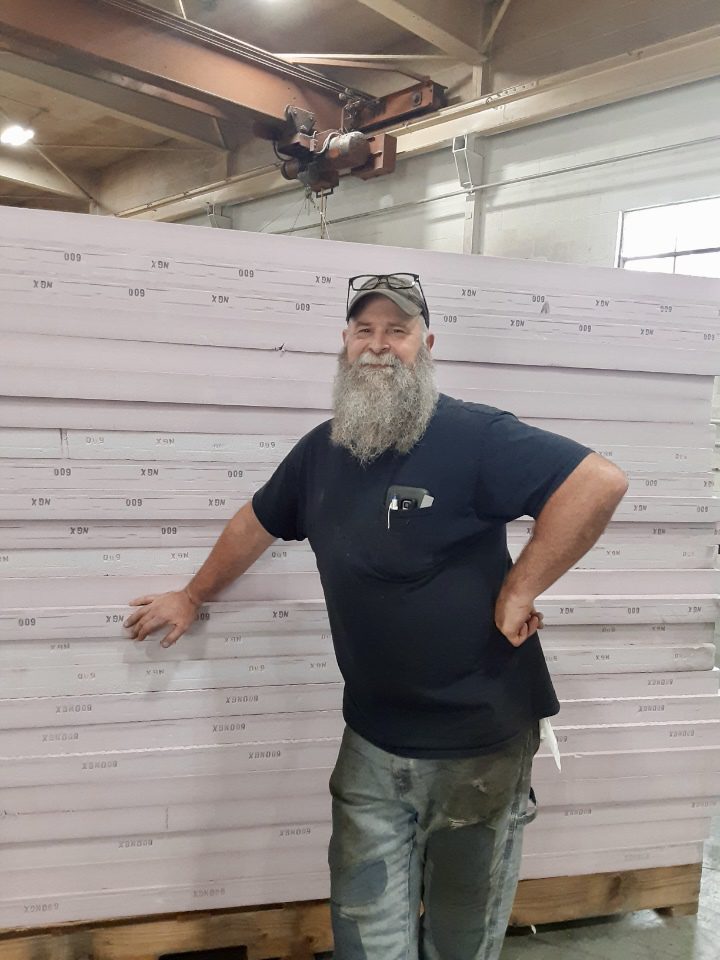
Chemical-resistant cryogenic foam has become an increasingly popular product recently as the demand for its extremely high-performance capabilities is being utilized by many industries. Chemical-resistant cryogenic foam is a polymer or elastomeric that has exceptional insulating properties at extremely cold temperatures – up to -325 oF (-198.33 oC). This particular type of foam is not only durable and versatile, but it also has great resistance to many chemicals. Polystyrene and polyurethane foams are types of cellular or expanded plastics that are common chemical-resistant cryogenic foams.
If you are in need of chemical resistant foams, PFI Advanced Equipment Manufacturers are cryogenic manufacturers with the experience and staff to assist with your needs.
Request a Cryogenic Foam Quote
Industrial Applications of Cryogenic Foam
While cryogenics once was relatively limited to military and aerospace equipment use, recent technological advances have made it more feasible for more common applications such as:
- Aircraft component and custom aircraft parts
- Liquid natural gas (LNG) production and transportation
- Surgical and medical device machining parts
- Ammonia refrigeration and cold storage facilities
- Scientific and research laboratories
- Petrochemical, industrial gasses, and agricultural chemical manufacturing
The development and manufacturing of cryogenic foam has enabled this ultra-cold technology to reach a much broader scope in its mainstream applications. Cryogenic systems are expanding into various piping applications, mobile containers, and storage tanks. Call PFI to learn more about our custom cut fabrication for foam products: (610) 856-7550
Different Types of Cryogenic Insulation
Polymeric foams have emerged as the essential component in cryogenic insulation due to the plethora of advantageous insulating properties. Three key polymeric foams used in cryogenic insulation are:
- Polyurethane foam
- Glass fiber-reinforced polyurethane foam
- Polyisocyanurate foam
- Corafoam® by Duna which offers singular durability
Other types of foam that can be used in cryogenic insulation applications are PVC and acrylics, but the polymeric foams are the most widely used. Trust the knowledgeable cryogenic equipment manufacturer staff at PFI to assist you with choosing the right materials for your project.
Features of Chemical-Resistant Cryogenic Foam
Cryogenic systems constructed of cryogenic insulation sport many characteristics that have increased their demand in the industry. Chemical-resistant cryogenic foam features:
- Cost-effectiveness
- Ease in manufacturing and fabrication
- Excellent insulation performance
- Ease of installation
Cut Foam is especially noted for their workability in both the fabrication facility and in the field. These cryogenic insulation materials can be formed and cut with the sophisticated CNC foam cutting tools. PFI expertly utilizes the best CNC machining equipment to handle any cryogenic foam job you may require.
Benefits of Chemical-Resistant Cryogenic Foam
Cryogenic insulation foam is extremely beneficial for cryogenic systems. Chemical-resistant cryogenic foam has proven itself a consistent performer exhibiting several key benefits:
- Integrity is maintained in extremely cold temperatures
- Maintains low thermal conductivity
- Withstands high mechanical forces
Pending the polymer and process used to manufacture cryogenic insulation, the specific benefits can vary from specific type of foam application.
Advantages and Disadvantages of Chemical-Resistant Cryogenic Foam
The advantages of chemical-resistant cryogenic foam offers significant advantages over other insulating materials. Polymeric foams features the following:
- Low thermal conductivity
- Low water absorption
- Light weight
- Size and dimensional stability
Variations in the foam structures are factors in their usability and applications. Evacuated, or sealed vacuum, foam insulation offers superior thermal efficiency, but in terms of large projects can be costly. Unevacuated foams are more cost-effective and exhibit similar thermal properties.
Cryogenic foam has few disadvantages. Some foam insulation can be subjected to degradation over lengthy periods of time and can also eventually lose some of its insulating and mechanical integrity through thermal cycling in time. The PFI cryogenic foam manufacturers will be able to assist you with choosing the right materials. Contact us today to discuss your needs.
Contact PFI Advanced Equipment Manufacturers
What Is the Importance of Using Chemical-Resistant Cryogenic Foam?
Cryogenic foams are excellent choices of insulating materials for extreme cold applications. Cryogenic foams inhibit heat transfer as they limit convection due to their structural nature that also provide potential moisture barriers. In the case of cryogenic pipe insulation for products such as liquid natural gas, chemical-resistant cryogenic foam is critical to prevent vaporization of liquid natural gas and other cryogenic gasses. Preventing such heat gains ensures safe storage and handling of these extreme-cold materials.
Some PFI clients in the bioscience product industry require specialized cryogenic foam to insulate temperature and protect from damage. Many of our custom cryogenic foam orders are related to vaccines requiring a custom foam packaging.
Trust the Cryogenic Foam Experience of PFI
When it comes to manufacturing the components for your cryogenic systems, PFI has over 75 years experience of custom foam fabrication. PFI leads the cryogenic foam industry as it is currently producing 50% of cryogenic foam components in today’s market. Put your trust in PFI to meet all of your cryogenic foam insulation and systems needs. Contact us today to inquire about your cryogenic foam solutions.

